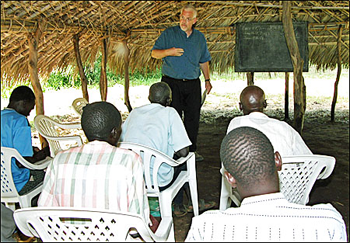 Teaching and Helping—Our Strategic Focus Teaching and Helping—Our Strategic Focus
Funding priorities are normal and necessary. Ours are serving underserved people through teaching and ministries of helps, while facilitating racial reconciliation. We’ve taught in-person courses or seminars in 8 other countries, primarily in Asia and Africa. In 2000 Africa had an estimated 382.5 million self-identified Christians. By mid-2021 that number is estimated to be 684.9 million, a 79% increase (World Christian Database, 2020)! There are more Christians in Africa than in any other continent.
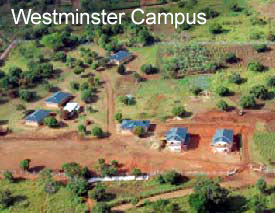 In Uganda we taught intensive courses at Westminster College and at All Nations Bible Institute. We helped start two Christian elementary schools in Kampala and assisted Westminster College to obtain and develop its 16-acre campus, with funding from Lookout Mtn. Presbyterian Church (LMPC). At the request of the field ministry, we partnered with Third Mill (thirdmill.org) In Uganda we taught intensive courses at Westminster College and at All Nations Bible Institute. We helped start two Christian elementary schools in Kampala and assisted Westminster College to obtain and develop its 16-acre campus, with funding from Lookout Mtn. Presbyterian Church (LMPC). At the request of the field ministry, we partnered with Third Mill (thirdmill.org)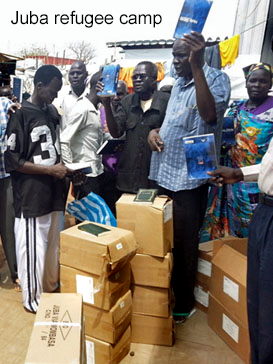 in 2008 to bring their courses and curriculum to northern India. Later we took it to Juba, S. Sudan, which became the foundation of Grace Theological College (GTC). in 2008 to bring their courses and curriculum to northern India. Later we took it to Juba, S. Sudan, which became the foundation of Grace Theological College (GTC).
Another aspect of teaching is scripture distribution in heart languages, where feasible. Thousands of Bibles have been distributed in Uganda, and S. Sudan, particularly through LMPC and Maclellan Foundation funding. Finally, there are many teaching papers, handouts and PowerPoints for free download at www.RMNI.org
Equipping Indigenous Leadership
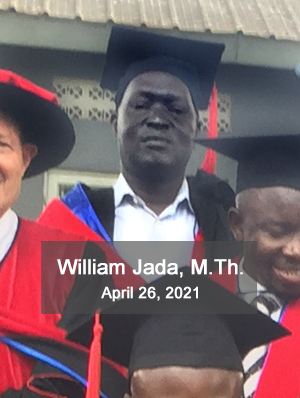 Nationals must carry institutions forward. The three Juba men who graduated from an MDiv or similar program (a fourth is in progress) initiated and continue to lead GTC. Donors are providing a solid, basic library, and have funded GTC’s intensive Mobile Pastor Training Courses at Maridi, S. Sudan. Donors have also funded twelve GTC 1-hour call-in radio programs on topics such as grace, suffering, family, and cults. We still provide specialty seminars by expats on short-term mission trips. Nationals must carry institutions forward. The three Juba men who graduated from an MDiv or similar program (a fourth is in progress) initiated and continue to lead GTC. Donors are providing a solid, basic library, and have funded GTC’s intensive Mobile Pastor Training Courses at Maridi, S. Sudan. Donors have also funded twelve GTC 1-hour call-in radio programs on topics such as grace, suffering, family, and cults. We still provide specialty seminars by expats on short-term mission trips.
Holistic Ministry
Jesus taught and healed, so it’s appropriate to try to meet  medical and emergency needs. Physicians, nurses, and dentists have partnered in Kenya, Uganda and S. Sudan, working in clinics, tents, under trees and in refugee camps. It’s well worth the logistics and cost to see patients receiving sight, or meds or dental treatment. We assist with occasional food relief both in S. Sudan and locally, and assist with rent emergencies locally. medical and emergency needs. Physicians, nurses, and dentists have partnered in Kenya, Uganda and S. Sudan, working in clinics, tents, under trees and in refugee camps. It’s well worth the logistics and cost to see patients receiving sight, or meds or dental treatment. We assist with occasional food relief both in S. Sudan and locally, and assist with rent emergencies locally.
Gospel Priority
We prioritize evangelism—which can lead, with biblical teaching, to full development of a person, a tribe or nation. We partner with local evangelists to share the Great News, including with those seeking medical help. We’ve shown the Jesus film in Uganda, S. Sudan, and inner-city Chattanooga. Teams of 2-3 fan out each week at a housing project in Chattanooga to discern spiritual and physical needs. However, Jesus’ priority was meeting eternal needs over temporal ones (Lk 4:40-44). We teach personal evangelism and offer evangelistic resources at https://rmni.org/files/handouts/
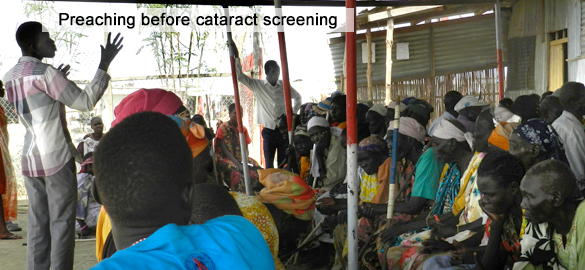
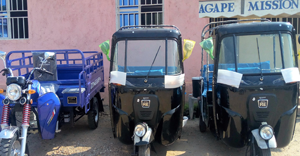 Self-funding Institutions Self-funding Institutions
We don’t fund relatively expensive church buildings. For us that is neither sustainable nor adequate to serve the multitude of new believers. Instead we have funded training in Disciple Making Movement (DMM, rapid discipleship) and simple house church methods inside two refugee camps, but not successfully. That is a paradigm shift not embraced by many, among whom a church structure is not a target for attack, but is rather a sign of legitimacy and permanence.
We work toward self-funding, as projects eventually end. Ministry partners recently provided four 3-wheel motorized rickshaws or cargo bikes to generate reliable income for Grace Theological College, and another three vehicles for Agape Mission, our diaconal partner mission in Juba. Drivers are hired from within Juba churches. LMPC provided funds to renovate motel rooms which were converted into office space, providing essential rental income to GTC.
Accountability
We trust, and verify through financial reporting and multiple eyes on funds received and transferred. We try to visit the field annually to determine progress. We discontinue what does not work, challenge what is not realistic, and fund what is effective. As Tim Keller put it, we may be taken advantage of, but we make that hard to do. We manage expectations, make few promises, and try to keep them. We negotiate projects in writing, specifying ownership, who controls, and mutual expectations (learned the hard way). We try to provide timely, detailed outcomes to donors.
 Loving relationships Loving relationships
Love is the greatest human attribute, and needs be the medium of ministry relationships—among RMNI volunteers, donors, and ministry partners as well--not just toward those described in our mission statement. Our Board, which is half black and half white, has begun meetings with my wife’s breakfast, and has experienced 21 years of harmony. We try to cover costs incurred by organizations providing RMNI with materials and equipment that are offered at no charge. As situations arise we may provide rest and refreshment, clothing, equipment and software to partners. We shield field ministries from use by organizations that don’t adequately compensate them for expenses. Love should permeate all relationships, even when tough love is needed, and even when we fail to exemplify it.
Full Partnership
Finally, we strategize with ministry partners to support our mutually larger vision. Jesus came to destroy the work of the Devil (1 John 3:8). We need field partners’ expertise, workers, networks, translation, and good will. Field ministries often need at least initial funding and perhaps expertise. Together we pursue obeying the Great Commission. Jim Sutherland
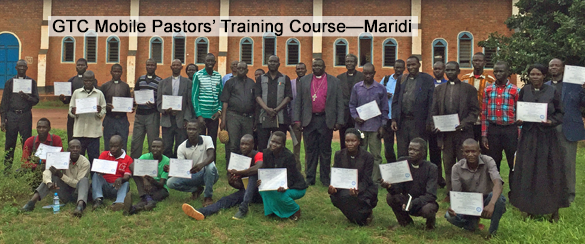
|